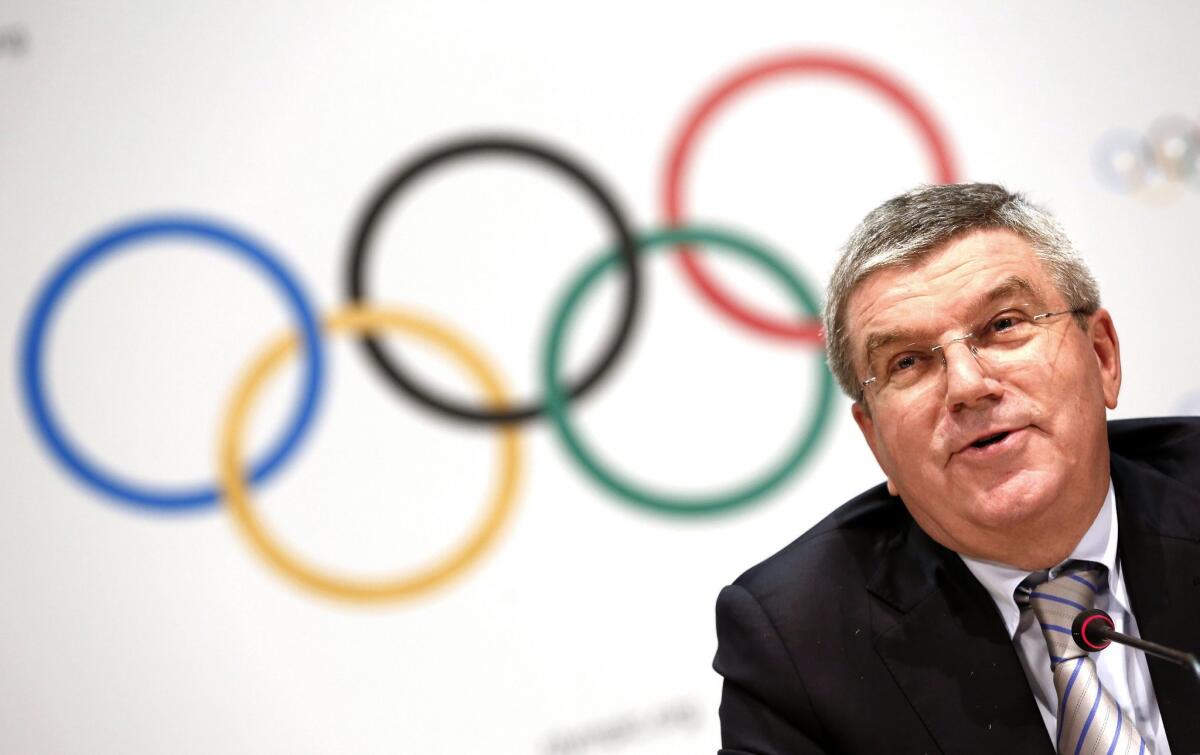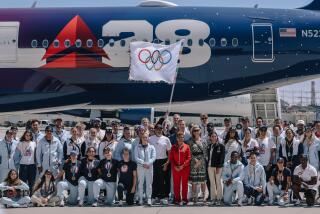Olympic officials adopt reform package more quickly than expected

Olympic officials had planned to spend two days discussing and voting on a long list of reforms contained in their “Olympic Agenda 2020,” but they needed only Monday to unanimously approve the 40 recommendations.
Strong support for the package at a meeting in Monaco represented a victory for Thomas Bach, president of the International Olympic Committee, who had spent more than a year pushing for change.
“Now that you have approved all 40 recommendations, you can see the whole picture. It is a picture of progress,” Bach said, calling the quick vote “a very, very positive surprise.”
Among the most-significant reforms:
-- The IOC will seek to make the bidding process more informal and less expensive after several cities withdrew from consideration for the 2022 Winter Games. Candidates will be encouraged to use existing and temporary venues. They will also have the flexibility to host events outside their city or in neighboring countries to help spread costs. San Diego recently considered a joint bid with Tijuana.
-- There will no longer be a cap of 28 sports, so baseball and softball have an opening to return to the Games. The IOC will instead limit the Summer Olympics to 10,500 athletes and 310 events, meaning that some existing sports might have to reduce their number of events.
-- The IOC will create a digital television channel devoted to Olympic sports between the Winter and Summer Games.
-- The Olympic Charter will expand its nondiscrimination wording to include sexual orientation, a move the follows considerable debate over Russia’s anti-gay propaganda laws at the 2014 Sochi Games.
Other recommendations call for increased transparency in IOC business, a stronger code of ethics and further consideration of the age limit for members, which is currently set at 70 years old.
Bach praised the 96 members in attendance for reaching an agreement.
“Some of the recommendations were not easy for certain members to swallow,” he said. “Some may have hoped for no recommendation or a different recommendation on a specific issue. So it was encouraging that regardless of their individual interests or positions, they were determined to make Olympic Agenda 2020 a success.”
More to Read
Go beyond the scoreboard
Get the latest on L.A.'s teams in the daily Sports Report newsletter.
You may occasionally receive promotional content from the Los Angeles Times.











